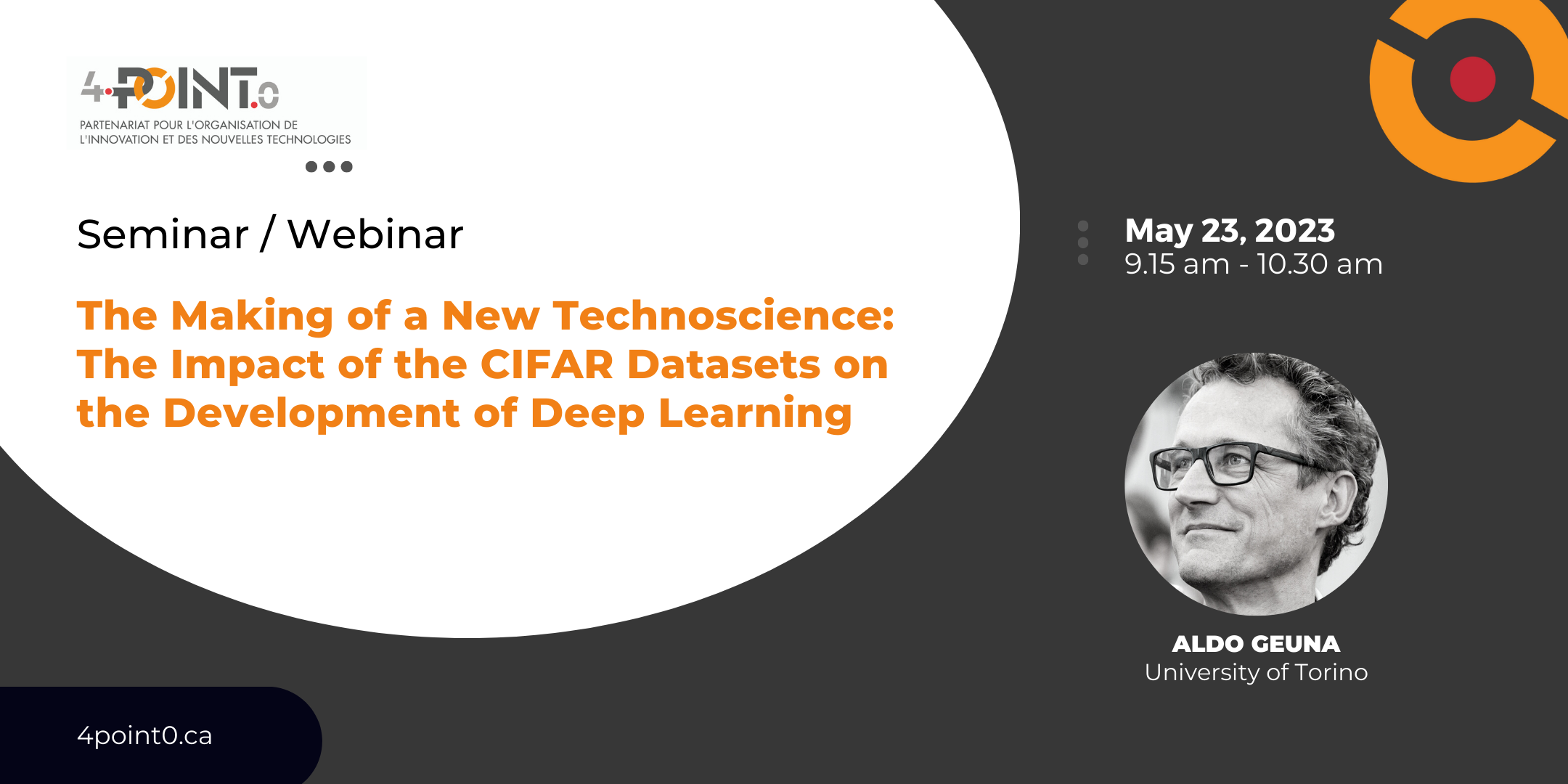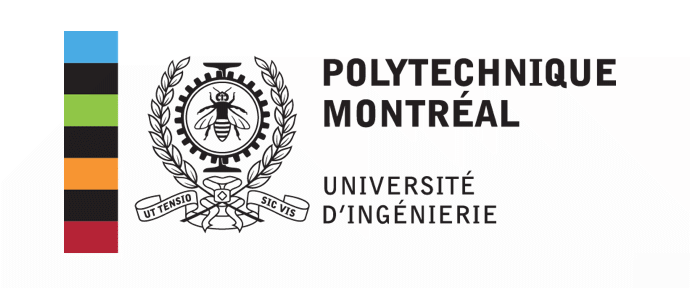The Making of a New Technoscience: The Impact of the CIFAR Datasets on the Development of Deep Learning
2023-05-23 • 9:15 10:30

4POINT0 is pleased to welcome Aldo Geuna (University of Turin and CIFAR Fellow) for the seminar The Making of a New Technoscience: The Impact of the CIFAR Datasets on the Development of DeepLearning.
Rerun
3-minute preview
Abstract
The Making of a New Technoscience: The Impact of the CIFAR – Datasets on the Development of Deep Learning
Daniel Souza, Aldo Geuna and Jeff Rodrigues
Artificial Intelligence technologies promise to revolutionize the knowledge production process. At the core of one of the most important approaches to the AI is a series of Machine Learning techniques known as Deep Learning. Deep Learning has been regarded as a new method of invention and potentially a general-purpose technology in which the next industrial revolution may be based.
This paper analyses the emergence of Deep Learning as a technoscientific field, that is, a domain in the middle of scientific enquiry and technical problem-solving. More specifically, it examines the role played by labelled datasets (CIFAR-10 and CIFAR-100) and the funding institute that supported the birth and growth of deep learning, the Canadian Institute for Advanced Research (CIFAR).
We carried out a qualitative and quantitative analysis of the impact of CIFAR-10 and CIFAR-100 on the fields of computer vision and object recognition and how this impact relates to development of Deep Learning. We assess both scientific and technological impact.
We find that CIFAR datasets were fundamental for the developments which lead to the Deep Learning revolution and still shape the trajectory of the field.
We also show that CIFAR datasets are relevant in teaching Deep Learning techniques, which highlights the profound impact of this technological artifact in the development of the field. The econometric analysis confirms that the CIFAR-10 dataset had a very significant early impact in the literature (citation count) and is still relevant and used to this day by both academic researchers and Machine Learning practitioners.
Finally, we also analyzed other outcome proxies from PlumXAnalytics finding evidence of the major role of CIFAR-10 and ImageNet in the development and use of Deep Learning.
CIFAR-10 database was the most important open database in the first few years of the development of deep learning and it keeps on having a prominent role after more than 12 years.
The CIFAR-10 database keeps on being used today as one of the fundamental tools to teach deep learning to graduate students in computer science.

Aldo Geuna is Full Professor of Economic Policy at the Department of Cultures, Politics and Society, University of Torino, Fellow CIFAR, Fellow of the Collegio Carlo Alberto and Senior Research Associate at the Innovation Policy Lab, Munk School of Global Affairs, University of Toronto. He was Visiting Fellow at SIPER, Stanford University, Senior Lecturer at SPRU, University of Sussex, Senior Research Fellow at the Robert Schuman Centre for Advanced Studies, European University Institute and Research Fellow at BETA, Université Louis Pasteur (Strasbourg).
He has published several books and articles in refereed journals in the area of economics of science, economics of innovation and science and technology policy. He has had editorial responsibilities in Information Economics and Policy, Italian Economic Journal, Journal of Technology Transfer andResearch Policy.
He has been a member of various scientific committees, expert groups and panels in Italy, Sweden, the UK as well as for the OECD, the National Academies (US) and the EU. He has been an invited speaker in various European countries, the US, Canada, China and Korea. He taught as invited visiting professor in Chile, France, Italy, Spain and Vietnam.
This content has been updated on 2023-06-14 at 18 h 57 min.


